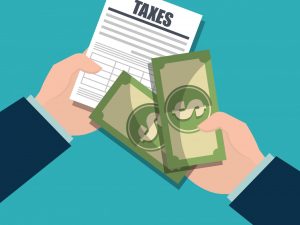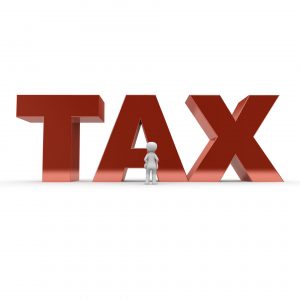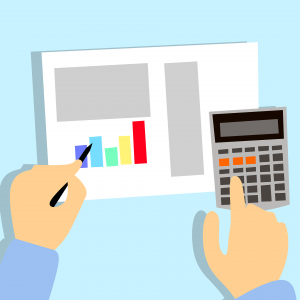Disclosure: Privacy Australia is community-supported. We may earn a commission when you buy a VPN through one of our links. Learn more.
Cryptocurrency Tax in Australia (Beginners Guide)

The Australian Tax Office (ATO) recently came out with a report claiming that they were going to target cryptocurrency traders.
As the new year approaches, it’s time for traders that deal with crypto to start thinking about the new tax and how it’s going to affect them.
Below, we’ll look at all of the key things to know to file your taxes correctly, avoiding fines and penalties.
Table of Contents:
- Crypto Tax 101
- ATO’s Definition of Cryptocurrency
- Crypto Tax: How it Works
- Do I have to Pay Capital Gains
- Exemptions: Do I Qualify
- Top 3 Australian Crypto Tax Specialists
- Lost or Stolen Crypto
- Keeping Records: What to Take and Toss
Crypto Tax 101
Because a lot of these terms and concepts are so new, we’ll start with a small overview. The details are coming up, though this is a pretty good place to start.
ATO’s Definition of Cryptocurrency

According to the ATO, cryptocurrency is any kind of digital currency that is not Australian or foreign currency. Because it’s not defined as a currency at the moment, it’s treated as property, which is why it is now subject to either capital gains or taxes.
Crypto Tax: How it Works

If you made a profit on your cryptocurrency holdings, you likely traded it for either another currency, a different cryptocurrency, or a good or service.
The amount that you’re taxed depends on the difference between what you bought it for and what you sold it for.
For example, if you scored 1 BTC at $2,000 (we know it’s impossible!) and sold it when the value was $10,000, you’d be looking at an $8,000 taxable amount.
The amount is set, but the way that it’s taxed is different. The difference depends on whether or not you are considered a business or professional, or just an individual.
Business or Professional

When you’re considered either a business or a professional, the amount that you have invested or profited from in crypto is considered income. A few examples of taxable crypto dealings include:
- Crypto mining
- Professional crypto trading
- Operation of a crypto-related business
One of the most confusing things about the recent tax law is that definitions are not that well-defined. Personal and business accounts don’t have clear cut-offs, something that you should keep in mind before filing without some sort of expert assistance.
Personal

If you fall into the personal category and do not meet any of the criteria mentioned above, then the crypto you sold is treated as an investment. Because of that, it’s technically subject to capital gains and not taxed. If this is a situation you fall into, you likely bought crypto yourself, mined crypto as a hobby, or just casually traded here and there.
Do I have to Pay Capital Gains?
You likely fall under the category of personal trading, in which case you’re subject to capital gains instead of taxes. Just because you invested in crypto does not mean that you will have to pay taxes. Instead, there are a few reasons when capital gains tax would apply, including:
- You sold crypto or gave it as a gift
- You traded crypto for another currency
- You converted your crypto into another currency (AUD or Forex)
- You used it to purchase goods or services
According to the newest tax laws, capital gains tax only applies to those who have sold their crypto or used it to purchase a good or service. For those that have invested in crypto and hold onto it for more than a year, there is a small perk coming your way. For all of those who haven’t touched their crypto, you’ll score a 50% CGT discount, so be sure to take advantage of that.
For those that did trade but sold at a lower price than what they bought it for, they will have to claim capital losses. Capital losses aren’t always a bad thing, used as a way to reduce the capital gains set to pay. This does not just apply to crypto and applies to all investments within your portfolio.
Exemptions: Do I Qualify?
There are a few cases in which those who deal with cryptocurrencies are exempt from paying taxes. You may not have to pay but, you have to have at least one of the following situations dealing with your cryptocurrency.
- Purchases include things for personal use. A few purchases that qualify include hotel stays and purchasing items in retail stores.
- Capital gains add up to less than $10,000.
Keep in mind that it all depends on how your crypto is classified. If it’s part of a plan to pull profit or part of a larger investment, then you’ll likely get taxed.
Not everyone gets into crypto with the same idea and will sometimes change what they use it for overtime. If that’s the case for you, it’s best to get in contact with a specialist, one that can help you navigate this new law and make sure that you do things correctly to avoid penalties and fees.
Top 3 Australian Crypto Tax Specialists

Finding a tax specialist that you know and trust is easy to do these days, as more and more people jump into crypto. For all of your questions, check out three of the best specialists in the Aussie area.
CryptoTax
If you’re into getting things done fast, CryptoTax could be the best option for you. This service was made by Australians for Australians, helping them figure out how to navigate all of the new laws and get a good handle on what taxes they might have to pay.
CoinTracking
CoinTracking is another service for Aussies, one that reports and tracks taxes. With this handy tool, investors can gain access to real-time reports that show profits and losses, as well as the current value of coins in holding. Even if you’re not worried about taxes, this software will give you a good idea of how your crypto is performing.
CryptoTrader.Tax
CryptoTrader.Tax provides users with a detailed report of all crypto holdings in minutes. It has a unique system that allows users to connect all of their cryptos and get a glimpse of all trades all in one place. Using this software, Australians will have a better idea of how much taxes they will have to pay and what is taxable and not within their holdings.
Lost or Stolen Crypto
With the exceedingly aggressive climate on the web, crypto is at risk of being stolen. It’s not just about hackers though, as the private key given to holders can also be lost. While some things that have been lost or stolen qualify for capital losses, that’s not the case with crypto.
If your private key is either lost or stolen, you might be able to claim a capital loss if you provide very detailed information, including:
Dates – Provide the date you received your key and the date you lost it.
Address – The address of the public wallet that’s linked to the private key.
Costs – The amount paid for the crypto that was lost or stolen.
Proof of identity – Public wallets are linked to you so, you’ll need to provide proof of identity and make sure that it matches all records.
One thing about crypto is that, if you lose your personal key, you cannot get access to it. It’s important to always store it in a safe place so that you can get your hands on it when you need it.
Keeping Records: What to Take and Toss

Because of the importance of keeping up with crypto, it’s recommended that you keep records of everything possible. A few things to make sure that you keep up with include:
- Transaction dates – If you traded, bought, or sold, you need to keep track of it. This information could come in handy if crypto gets lost or when it comes time for tax preparations.
- The value – Keep track of what the value was when you first bought and how it changed over time, making sure that you know what you’re dealing with in AUD.
- All parties – Using a wallet? Using a trading platform? Whatever the case, make sure that you keep track of it so you have all the info you need on hand.
- Passwords and keys – We mentioned above how important it is to keep up with your personal key but, we want to drill it in. Whether you store it online or off, make sure it’s somewhere that it will be safe.
When dealing with official documents and institutions like the ATO, it’s best to always have more proof than necessary. Keep all of your records handy so that you can use them when you need them.
Keep your Eyes Peeled

The new laws are put in place, but there are still a lot of kinks being worked out. Still, that’s not an excuse for lack of preparation, so you’ll need to be sure and get and keep things together. It’s best to work with a professional that can guide you if you have questions.
It’s not sure how this new tax will treat crypto in the future, though it’s always recommended to be prepared for what may come, so be sure to hang onto all important documents.
You Might Also Like:






